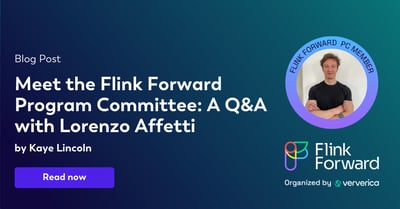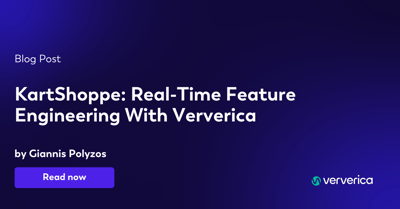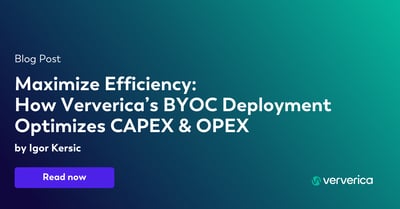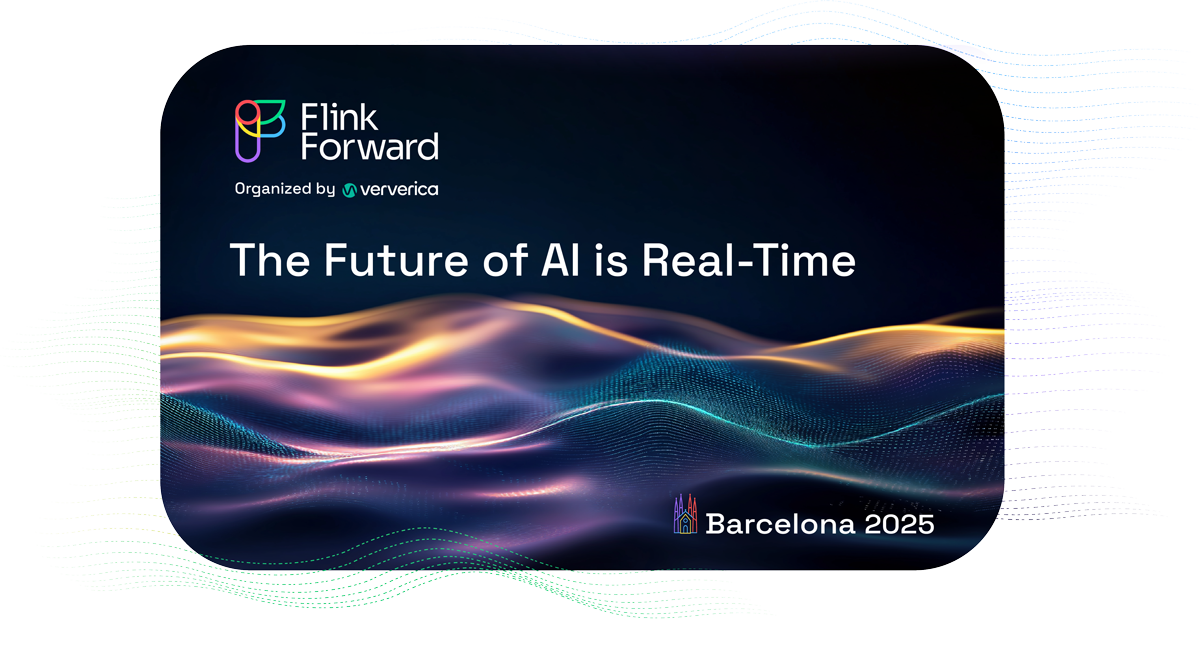Q&A with Damian Stevens, CTO & Co-Founder at Evoura
Our Flink Forward events are all about embracing the spirit of collaboration and knowledge sharing of Apache Flink® and everything streaming data! Flink Forward events unite the community to facilitate that and much more. Each year, we entrust a Program Chair (this year led by Jing Ge, Chief Technology Officer at Ververica) with the task of assembling a dynamic Program Committee. Drawn from a spectrum of industries, committee members boast profound insights into Apache Flink and streaming data technologies. Together, they meticulously sift through community submissions; sculpting the Flink Forward program.
We’re proud to have Damian Stevens (Chief Technology Officer and Co-Founder at Evoura) join us as one of this year’s Flink Forward Program Committee members. Let's delve into Damian’s insights on data streaming and Flink Forward’s role in shaping data streaming technologies.
Whatare some of the key trends you're observing in the field of data engineering, particularly with a focus on data streaming?
One notable trend I’m seeing is the increasing utilization of AI and advanced machine learning models. As companies strive to harness readily available data, the importance of tools for data streaming becomes increasingly prevalent. This presents an opportune moment to introduce innovative data streaming tools that ensure the availability of high-quality datasets for model training, consequently enhancing recommendation systems through real-time data integration.
As the co-founder of a consultancy specializing in data engineering, what are some common challenges organizations face when implementing data streaming solutions, and how do you address them?
Well, for starters, there’s the initial hurdle of getting started, compounded by the necessity of comprehending the business case and effectively applying data streaming techniques for optimal results. Additionally, there is often a lack of understanding regarding the intricacies of real-time data streaming. To address these challenges, our consultancy adopts a systematic approach akin to traditional engineering methodologies. We break down complex problems into manageable components, prioritizing areas where we can add tangible value to the business. By incrementally building and scaling solutions, we navigate these challenges effectively.
Could you share any success stories or case studies from your consultancy work where data streaming technologies have driven significant business value for your clients?
As a great example, in the realm of telecommunications, we implemented digital Network Operations Centers (NOCs) that leverage data streaming to detect anomalies in real-time. By processing vast volumes of data from diverse sources and dynamically transforming it, our solution empowers machine learning models to identify potential issues swiftly. This is particularly crucial in the telecom industry, where ensuring high-quality throughput and reliable uptimes is paramount, especially amidst the transition to 5G and fiber optics. Leveraging Apache Flink, we significantly reduced latency in fault detection and anomaly identification, enabling our telecom client to deploy self-healing mechanisms and enhance their responsiveness to potential faults.
What motivated you to join the Program Committee for Flink Forward, and what unique perspective do you bring to the table?
I’m keen to expand the adoption of data streaming technologies among businesses aspiring to become more data-driven. Having previously been on the customer end, striving to implement real-time dashboards, I offer a unique perspective grounded in firsthand experience. I understand the transformative potential of data streaming in enabling enterprises to make informed decisions based on real-time insights into customer behaviors and trends.
As an experienced software engineer, what advice would you give to individuals or organizations embarking on their journey with data streaming technologies?
I’d definitely recommend starting with a focused approach. Begin by identifying a specific problem you aim to solve and leverage minimal tools or frameworks necessary to address it effectively. By iteratively refining your solutions, you can gradually expand your capabilities and tackle more complex challenges.
In your opinion, what are some of the key factors driving the adoption of Apache Flink in the industry, and how does Flink Forward support this momentum?
Beyond developer buy-in, it's crucial to garner support from commercial and product stakeholders, illustrating how data streaming can address pressing business challenges. Flink Forward plays a pivotal role in this momentum by serving as a platform to showcase successful implementations of data streaming technologies, thereby inspiring other companies to embrace similar strategies.
Where should organizations focus their resources when looking to become players in this sector??
In the context of real-time data processing, investing in data engineering talent and capabilities is paramount, especially with the increasing emphasis on AI and machine learning. Neglecting data infrastructure may lead to inaccuracies or false positives in deployed models, eroding confidence in data-driven decision-making. Moreover, as skilled data engineers become more available in the job market, now is the opportune moment for organizations to invest in talent acquisition and fortify their data capabilities.
Can you give us your take on Flink Forward’s role in data engineering?
Sure, what I’m seeing is the normalization of data streaming across all industries presents exciting prospects for data engineering. As real-time interactions become the norm, opportunities abound for delivering personalized recommendations, ensuring superior service quality, and facilitating seamless interactions. Flink Forward embodies these exciting developments by showcasing how data streaming can revolutionize business operations and drive innovation.
Looking ahead, what do you hope attendees will take away from Flink Forward, and how can they apply these insights in their own organizations?
At Flink Forward, attendees can gain insights into how Apache Flink has been deployed to address real-world challenges. These insights are invaluable for organizations seeking to implement similar solutions within their own contexts. By learning from successful case studies and understanding the practical applications of data streaming technologies, attendees can effectively advocate for investment and drive organizational change towards a more data-driven future.

You may also like

Meet the Flink Forward Program Committee: A Q&A with Lorenzo Affetti
Meet Lorenzo Affetti, a Program Committee member for Flink Forward 2025, ...

Outrun Fraudsters with Agentic AI and Ververica
Enhance fraud detection with agentic AI and Ververica's real-time stream ...

KartShoppe: Real-Time Feature Engineering With Ververica
Discover how KartShoppe leverages Ververica’s real-time feature engineeri...

Maximize Efficiency: How Ververica's BYOC Deployment Optimizes CAPEX and OPEX
Learn how Ververica's BYOC deployment leverages CAPEX and OPEX to optimiz...















